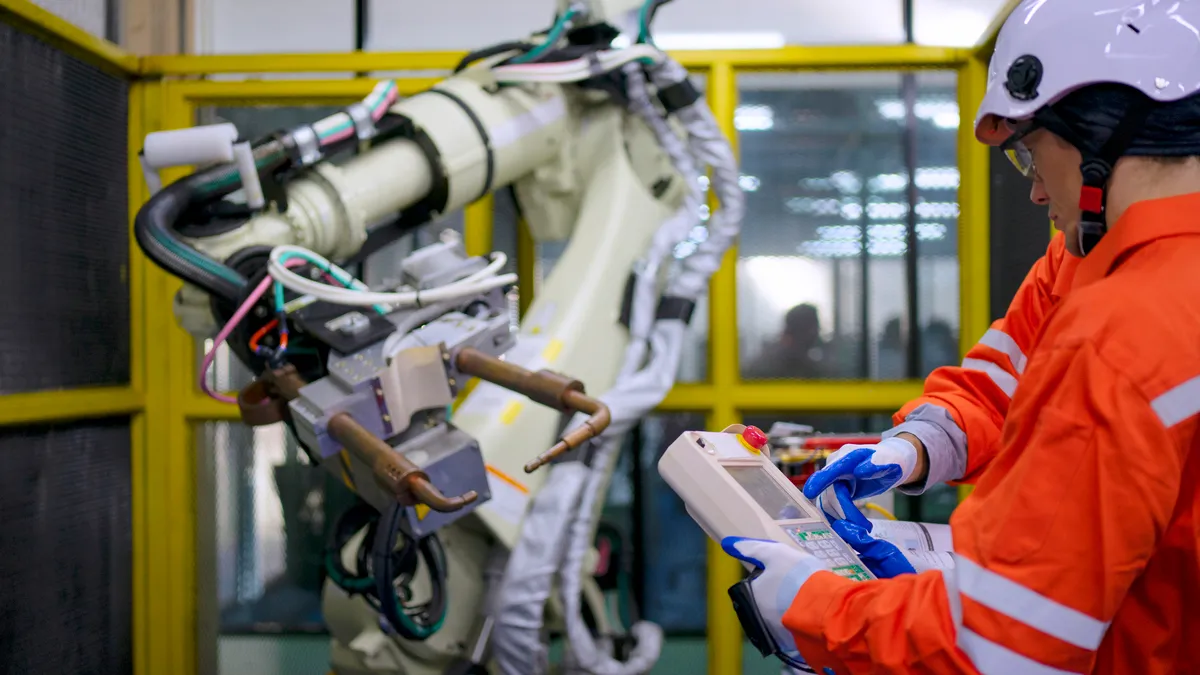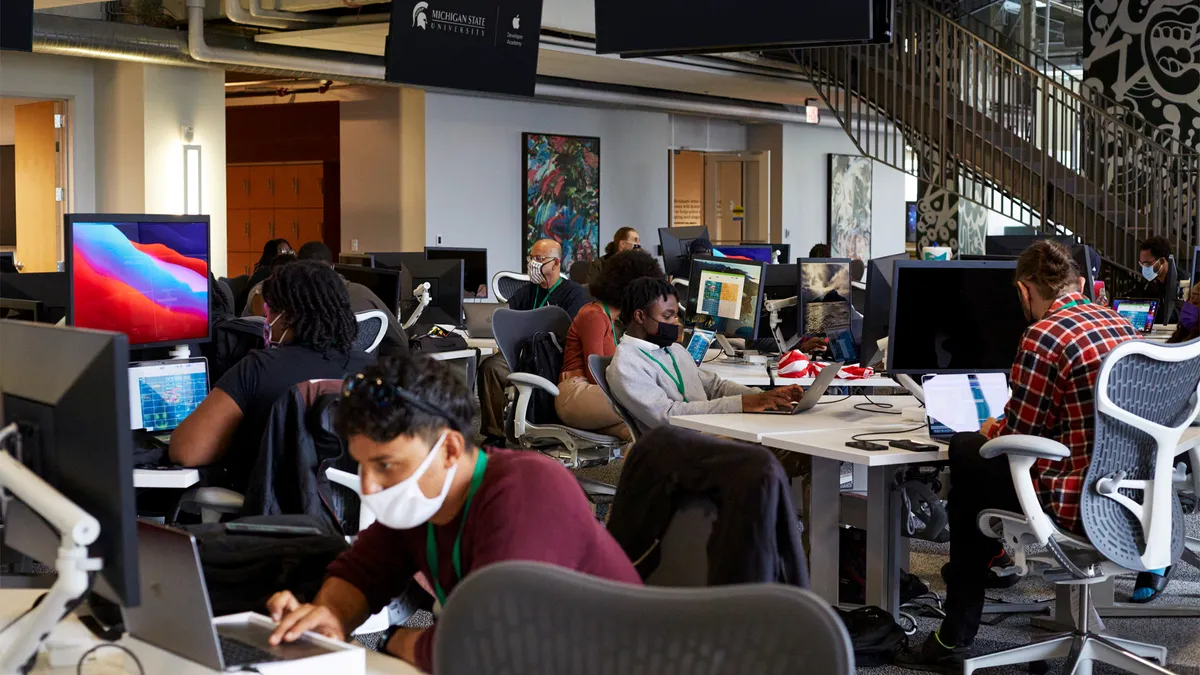J.S. Nelson is a law professor at Villanova University Charles Widger School of Law, a professor in the Management & Operations Department of Villanova Business School, and a senior fellow at Wharton's Zicklin Center for Business Ethics Research. Views are author's own.
Businesses are reopening as cities and states around the country begin to emerge from novel coronavirus pandemic lockdowns. The ethical challenges to businesses in this new normal may be familiar but take on additional meaning and priority. The working landscape has changed, perhaps forever. How employees and management move forward from this experience will shape the workplace for decades to come.
Businesses that consider these five ethical challenges now in making decisions can shine.
Ethical Challenge #1: Recognizing individual circumstances
Businesses may not be understanding the differences among their workers. Each person's situation may be very different, and a one-size-fits-all approach to oversight may be counter-productive.
Privileged white-collar workers may have jobs that continue to permit remote work, but still labor to care for children or sick family members. Meanwhile, essential workers who have kept supply chains and services operating never signed up to work jobs that might involve putting their own lives, and the lives of their loved ones, at serious risk. This population is also, to a great extent, economically vulnerable, as supply-chain and service-industry pay has not risen with the economy for decades, and many people may be working harder than ever now for take-home pay that may not be as much as what unemployment offers.
Businesses need to be sensitive to the unique concerns of workers, and to react appropriately.
Ethical Challenge #2: Reacting with empathy when feeling out of control
Employers may feel particularly not in control when employees work remotely. Yet studies of recent internet traffic and work-activity patterns reveal that white-collar workers, for example, are working an additional three hours per day more than if they were coming into the office. There may be slacking among less-senior remote employees, but seasoned employees may be working harder than ever. Unsurprisingly, these rising expectations also often take a greater toll on women. Working mothers are shouldering an average additional 65-hours-a-week of unpaid care and other duties, while also putting in longer a business day.
When lock downs started in March, business requests for worker surveillance software and services tripled within weeks, and phones rang "off the hook" for orders. Some employees are now being actively monitored at home, their keystrokes recorded, and they are being photographed every 5-10 minutes. When cameras look into workers' bedrooms, kitchens and living rooms, workers may feel no break from the workplace, leading to burnout, indignation, rage and even sabotaging behaviors.
Instead, businesses should react with empathy and a light touch. Employers who overreact in clamping down on diligent, hard-working employees lose them when the economy improves because of the resentment they feel toward the company for its overreaction.
Ethical Challenge #3: Maintaining transparency when feeling out of control
When times are uncertain for both employers and employees, being honest about the situation is most appreciated but also perhaps most difficult. Employers may want to hide their financial conditions because they are worried about employees jumping ship. Employers who are instead transparent with employees build a sense of togetherness. Research shows that such employers inspire in employees creativity, a sense of psychological safety in such honesty, and teamwork.
Ethical Challenge #4: Not taking advantage of the situation to push other agendas
The expansion of powers and control that have come, and will continue to come, with the pandemic makes many people — both workers and ethical managers — uneasy. New tools being introduced for public-health rationales, or at least initially sold as such, may continue to stay with us long past the time of emergency for which they were introduced.
Consider, for example, the new PwC location-tracing app, which employers will be able to install on employees' often-personal cell phones. Three in five Americans say that they would not, or could not, voluntarily install a similar app on their phones were Apple or Google to offer it to the public. Now employers may require the use of such an app in the workplace, which stays on employees' phones, tracing exactly who they talk to, where and when.
Even more blatantly, Amazon has reportedly made heat maps of its Whole Foods stores. The company's rationale is not to identify fevers, reported Business Insider, but to track and prevent employee union organizing. Additionally, Amazon's firing of workers for COVID-19 safety violations and image control infractions has allegedly been a cover to get rid of its most vocal critics among both warehouse and white collar staff. Notes released from an Amazon executives' meeting revealed the company's PR campaign to personally smear one its workers instead of dealing with his safety or working condition concerns. Such practices and other ways of intimidating workers have been disturbingly wide-spread among companies during the pandemic.
Just as we would want our public officials to leave their political differences aside in the fight against COVID-19, workers are asking for more far-sighted leadership from their employers as well.
Ethical Challenge #5: Remembering the power of healthcare and benefit coverage while not abusing them
Many frontline, essential workers during the pandemic are women (75% of most cities' healthcare workers) and minorities (60% of the nation's warehouse and delivery workers). These groups are contracting the virus in higher numbers because of their exposure, and, in the case of minorities, dying at higher rates.
In this crisis, healthcare coverage and similar benefits tied to employment become even more important. Employers should take care not to threaten the end healthcare of coverage and other benefits arbitrarily. With employers' elevated powers comes elevated responsibilities not to harm or manipulate workers — and their terrified families — by taking larger decisions that may affect workers' healthcare coverage too casually.
These last few months have been unprecedented, and companies that are reopening will have to make difficult decisions to adapt to the pandemic world. As is true with any approach to an ethical challenge, it is important that employers slow down, think through the full human ramifications of their actions, and remember empathy as much as they can. When the stakes are most elevated, businesses can come through the pandemic with stronger relationships with workers by demonstrating thoughtful ethical actions.












![Salesforce AI's CEO sits onstage across from Cristina Criddle. Screens that say Human[X] hang behind them.](https://imgproxy.divecdn.com/J71WpXWHjr8jmbCw_PX7Cp2YH7Pmo8dP66Pz0SEPfw4/g:nowe:0:104/c:1024:578/rs:fill:1200:675:1/Z3M6Ly9kaXZlc2l0ZS1zdG9yYWdlL2RpdmVpbWFnZS9HZXR0eUltYWdlcy0yMjA0NjUxNDM0LmpwZw==.webp)






